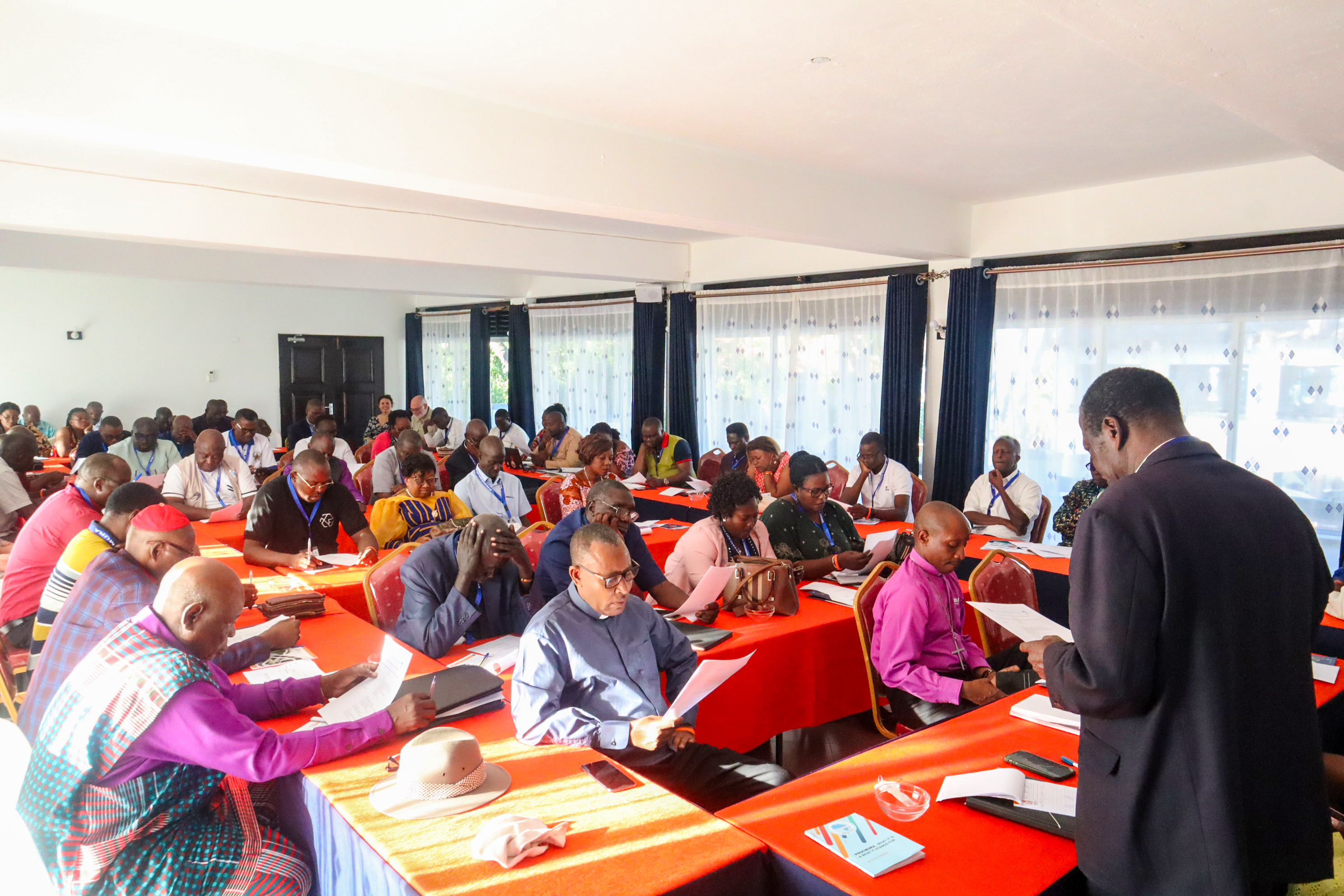
Church Leaders’ Workshop on the Transforming Mission of the Church Amidst Violent Conflicts and the Changing Expressions of Religions in A Growing Religious Pluralistic Africa
- By PROCMURA
- Events
- Hits: 2188
PROCMURA organised a two-day intensive workshop for Heads of Churches from the 8th to the 9th of April 2024 at the Milele Beach Hotel in Mombasa, Kenya, a region that symbolizes the vibrant religious diversity and the challenges faced by the church in Kenya and Africa at large. The workshop brought together over sixty (60) church leaders drawn from Seventeen (17) countries in Africa: Ghana, Liberia, Sierra Leone, Nigeria, Cameroon, Uganda, Kenya, Ethiopia, South Sudan, Tanzania, Rwanda, Madagascar, Mali, Togo, Benin, Burkina Faso, and Senegal. Among them were General secretaries of Christian Councils, Bishops, Moderators and heads of different churches and ecumenical organizations for successful workshop that saw various milestones achieved and commitments made.
The Workshop underscored the urgent need for the church's transforming mission in a growing and religiously pluralistic Africa. This is informed by the current rapidly evolving religious landscape of Africa in which the church implements its mission. The workshop implored church leaders to understand these changes and actively adapt their mission strategies to meet the needs of the changing times.
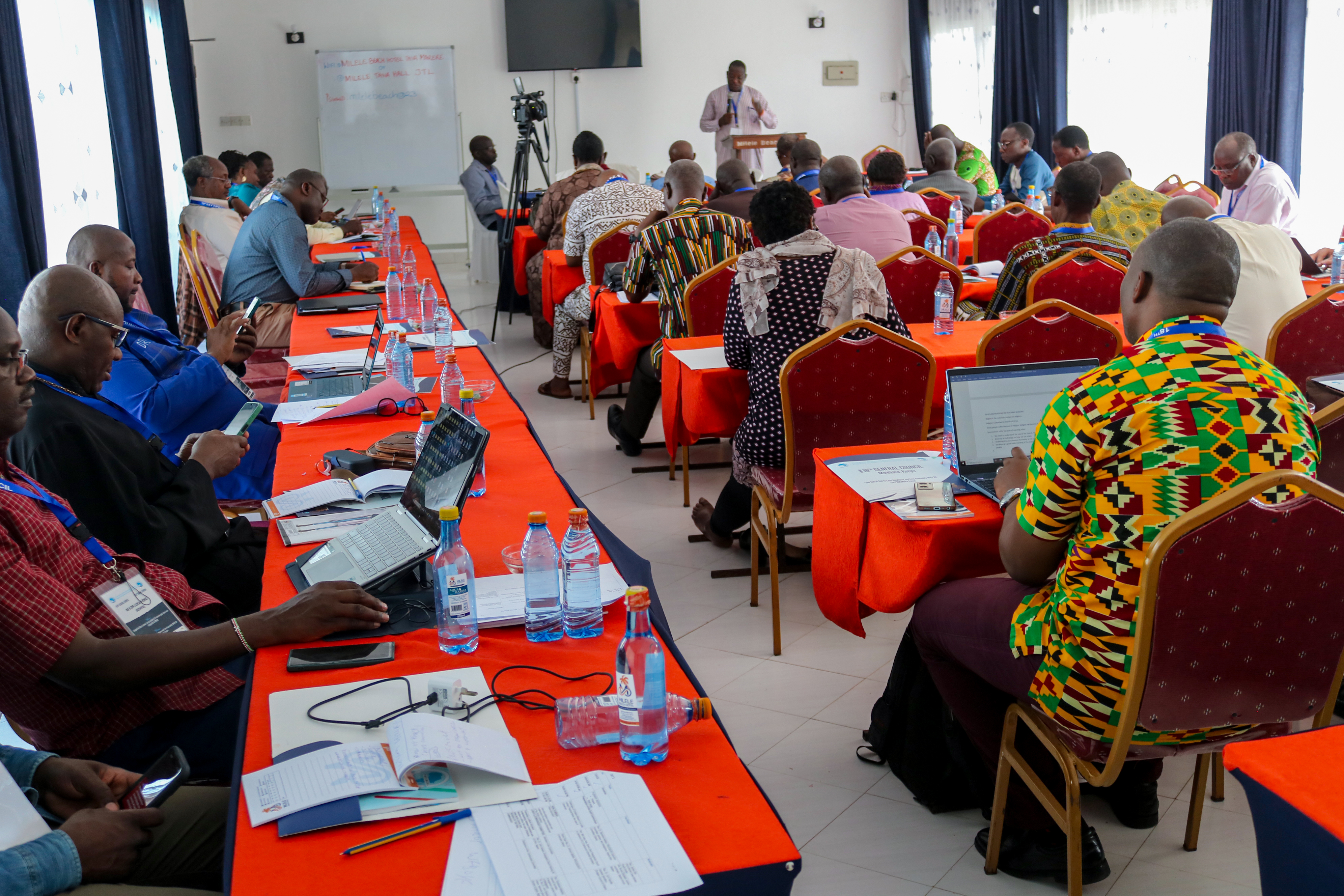
A section of the church leaders following a presentation.
In his opening and welcome remarks, the Chairperson of PROCMURA, The Most Rev. Dr. Josiah Idowu-Fearon, called upon the church leaders to be dynamic in their approaches to religious plurality, observing that we are living in times when leadership in Christendom is very vital. “God wants to raise up leaders whom He can trust to make a difference in the world today” - this, he said, is important irrespective of whether the society is singular or plural, stating that the church and its leaders must have an outward-looking discipline in an era that is religious pluralistic to enable the church to be a role model that understands the issues and active in guiding and mentoring the society to be outward looking which is an integral part of the church’s mission.
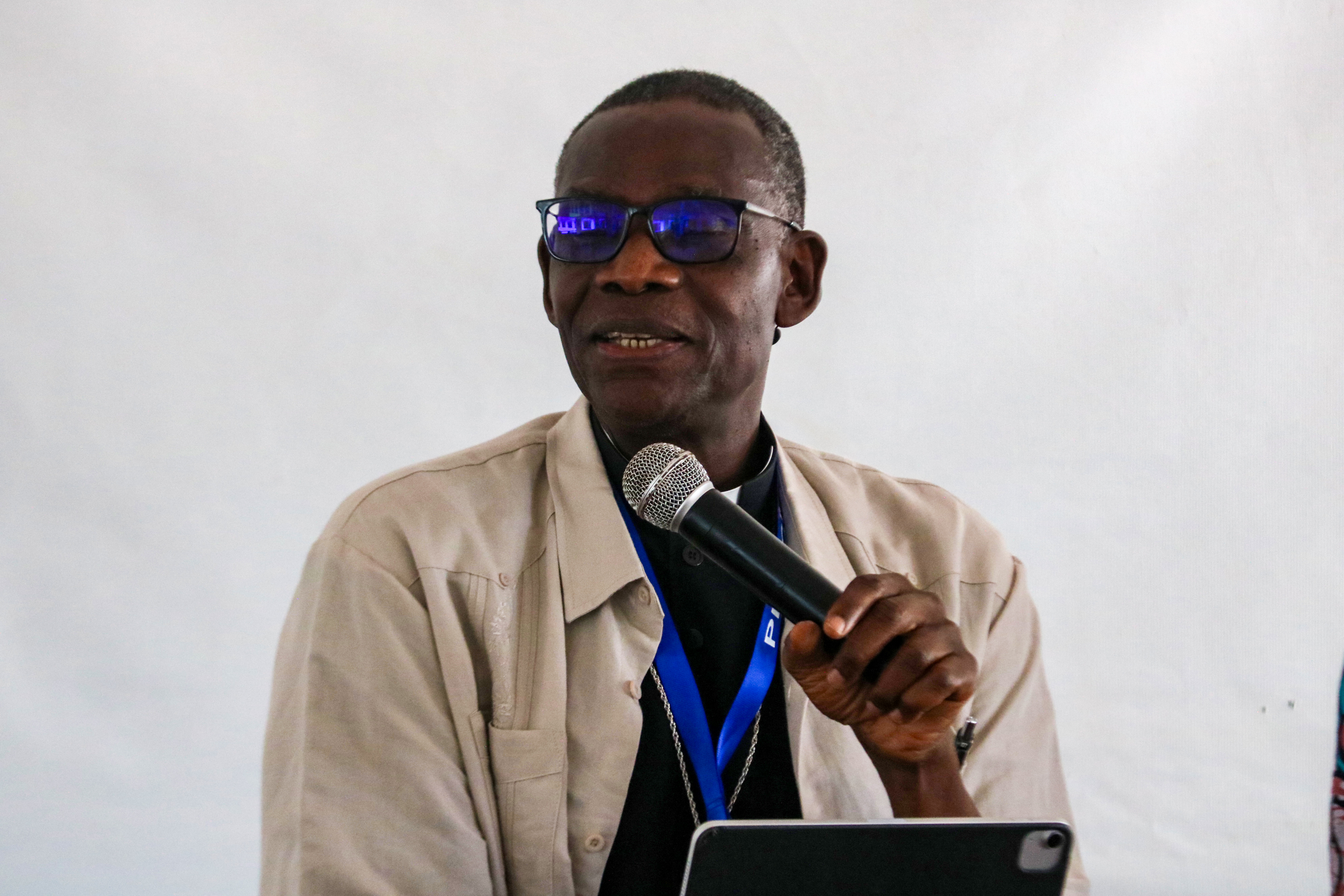
The Chairperson of PROCMURA The Most Rev. Dr. Josiah Idowu-Fearon.
The rationale of the workshop is informed by PROCMURA’s conviction that the church in Africa is a primary stakeholder in its work. PROCMURA firmly holds that the church should be well-informed and knowledgeable in contextual issues of Christian-Muslim relations. This is why it is crucial for PROCMURA to train and empower the church on faithful Christian witness in an interfaith environment and constructive engagement with Muslims for peace, peaceful co-existence, and the holistic development of the human family and the environment as our Mission guides. Therefore, the proper functioning of the church in its mission is vital for PROCMURA’s work because PROCMURA believes that Christian-Muslim relations are part of the church's mission.
On the other hand, the role of the church in peacebuilding and development cannot be overemphasized. The church must remain relevant in providing holistic healing and development. The church's transforming power can only be felt when it goes beyond the ecclesia to the community at large, meeting the needs of the vulnerable within a multi-religious context.
The Participants keenly followed the workshops with various experts and scholars presenting papers and engaging on the emerging issues and challenges that the church faces today, learning and drawing lessons from different contexts, countries and regions across Africa.
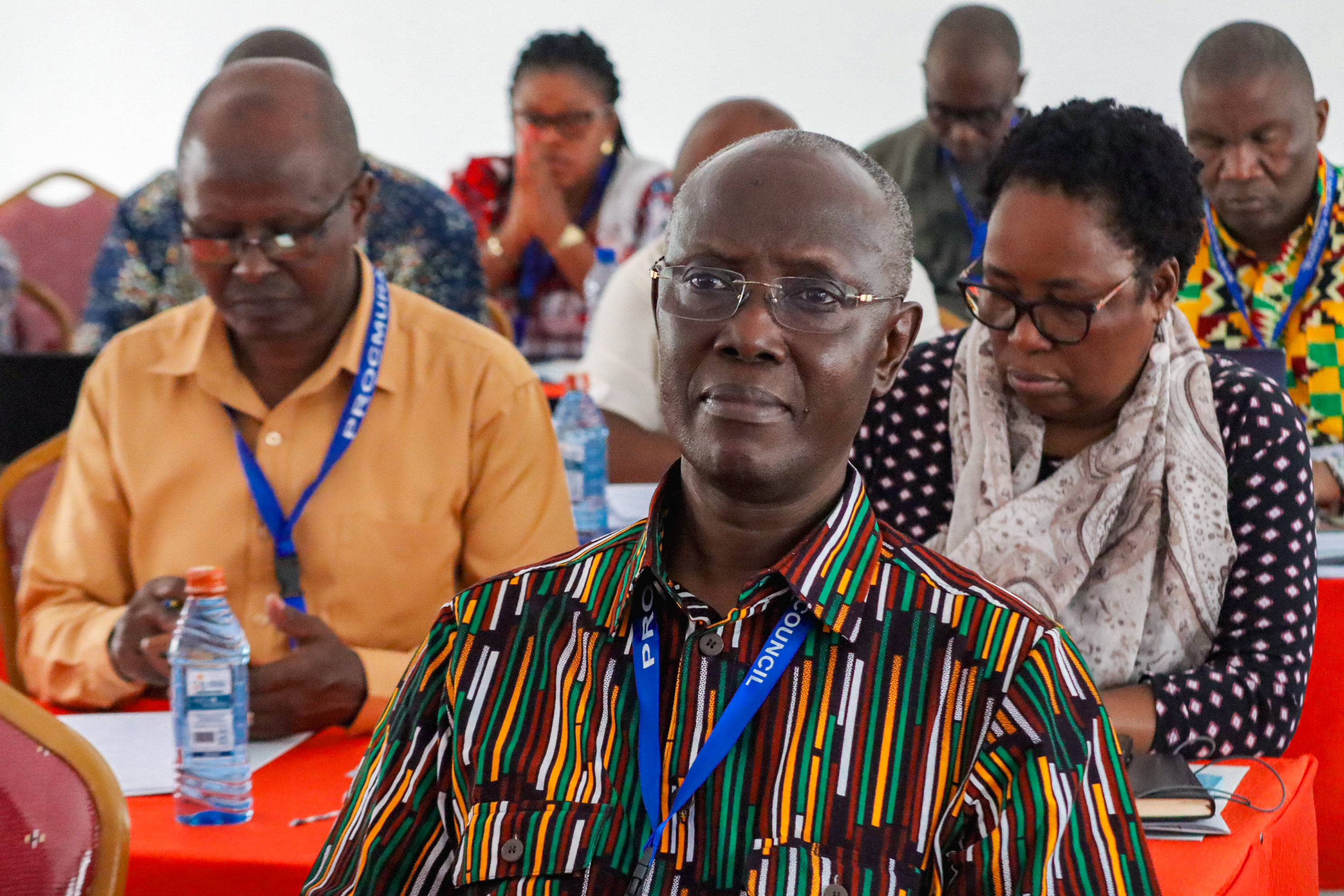
Bishop Nelson Kisare from the Mennonite Church of Tanzania among other participants.
The Programme Officer of PROCMURA, Rev. Dr. Salli Effungani, took the leaders through the workshop's main theme, “The transforming mission of the church amidst violent conflicts and the changing expressions of religions in a growing religious pluralistic Africa.” She urged the church leaders to view the challenge of religious plurality as a blessing from God and not a curse. She emphasized that the religious plurality in Africa is not surprising to God and invited them to collaborate with PROCMURA to develop counter-narratives to help fight radicalization and violent extremism in Africa. She underscored the important role that church leaders play in countering radicalization and violent extremism, which often implicates religion and affects the relationship between Christians and Muslims.
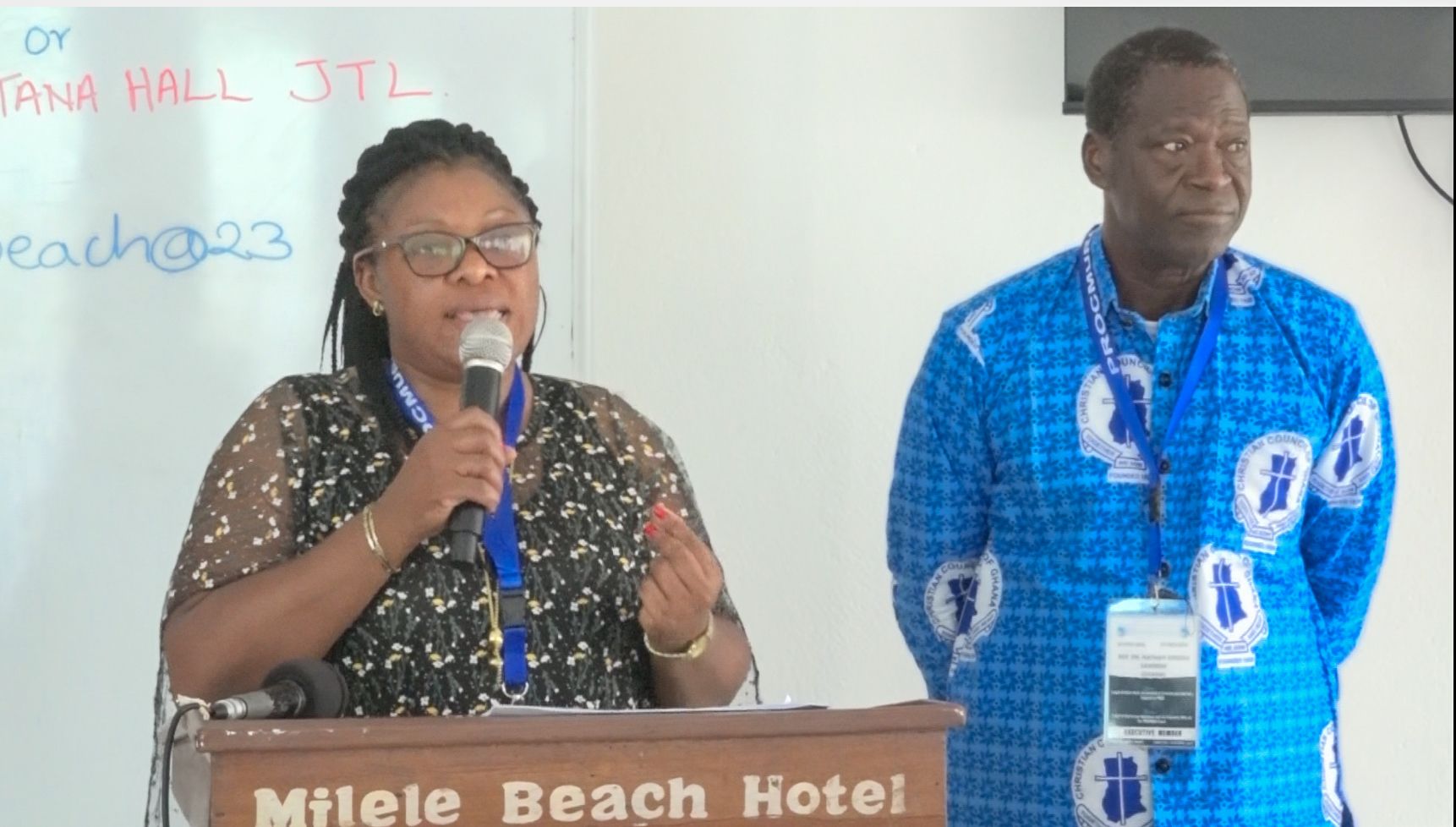
PROCMURA's Programme Officer Rev. Dr. Salli Effungani and Rt. Rev. Dr. Nathan Iddrisu Samwini engaging participants in a discussion after her presentation.
Consequently, in his presentation titled “A Comprehensive Analysis of the Complex Character of Christian-Muslim Relations in Africa,” Rev. Dr. Johnson Mbillah, PROCMURA’s Consultant, reiterated that Africa is a religious continent, and the Christian and Muslim communities are uncontestably the majority; hence, the need for the church leaders to play a lead role in creating constructive relationships between these two religions.
Rev. Dr. mbillah further expounded on the adverse effects of and the correlation between the politicization of religion and religionization of politics and the rise of religious extremism in Africa. While citing vivid examples where these two phenomena have contributed to the increase in instability and continually growing complexities of Christian-Muslim relations, Rev. Dr. Mbillah urged the church leaders to walk with PROCMURA in addressing these effects from the grassroots level before they develop into full-blown conflicts.
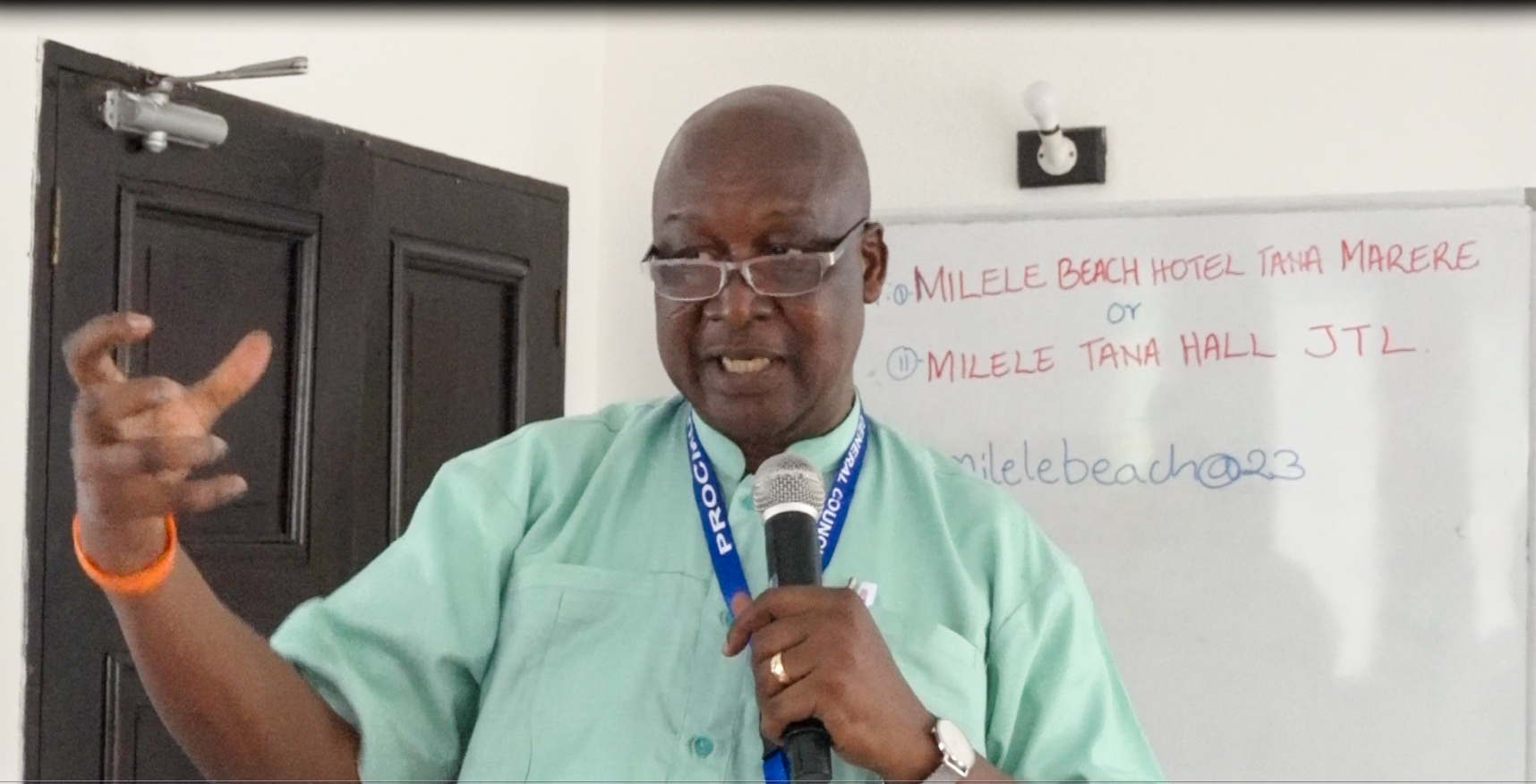
PROCMURA’s Consultant Rev. Dr. Mbillah driving a point home in his presentation.
The interactive workshop included a Panel Discussion session chaired by Dr. Mbillah, during which participants shared their thoughts and experiences on “Inter and intra-religious cooperation and collaboration for peace and development of the African continent.”
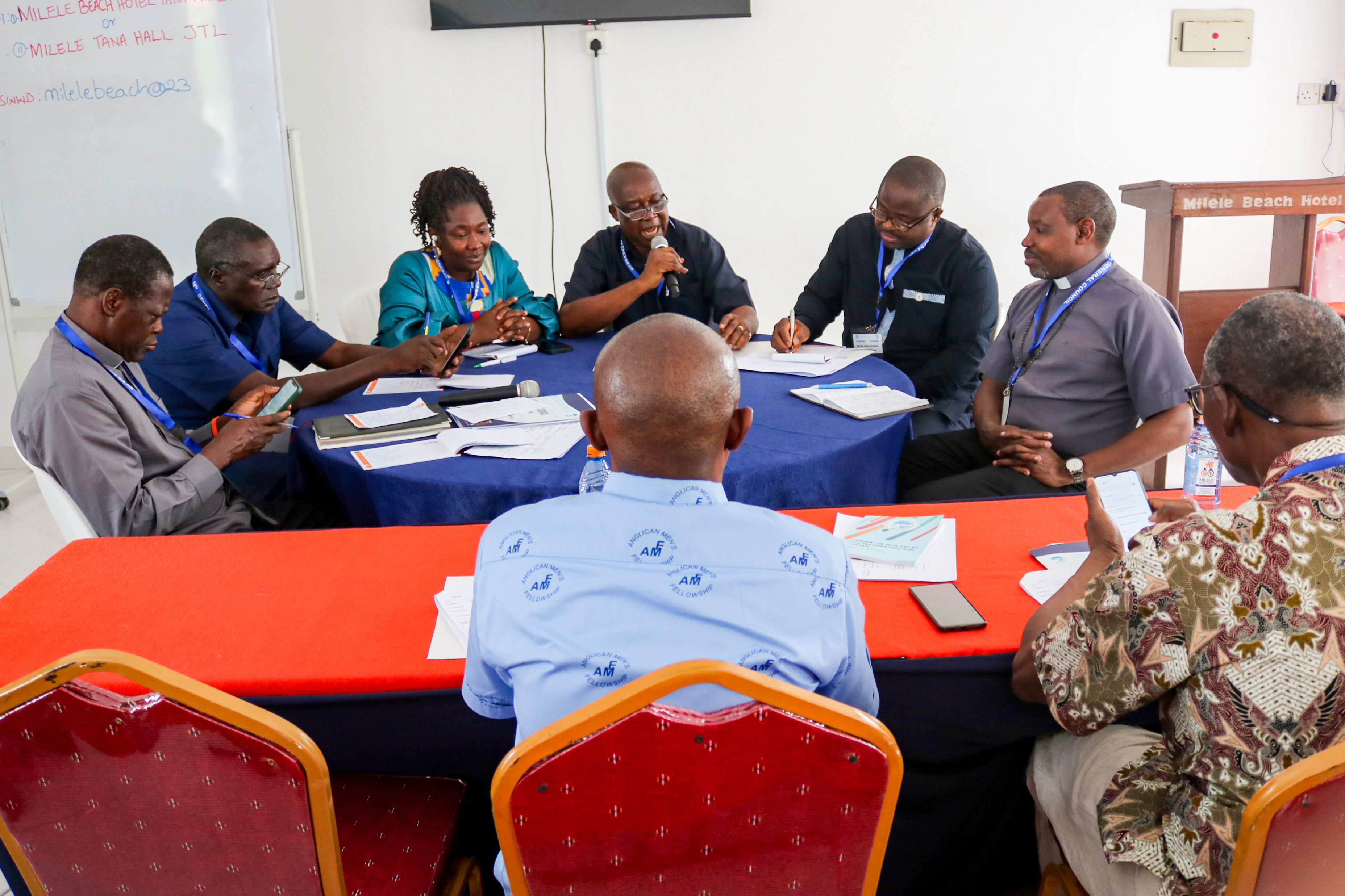
Rev. Dr. Mbillah chairing the panel.
“This is an excellent opportunity for us to learn and exchange ideas on how best to move forward as a church in Africa in terms of peacebuilding and development in our continent noting that this is,” Rev Dr. Dereje, the General Secretary of the Ethiopian Council of Gospel Believers, observed.
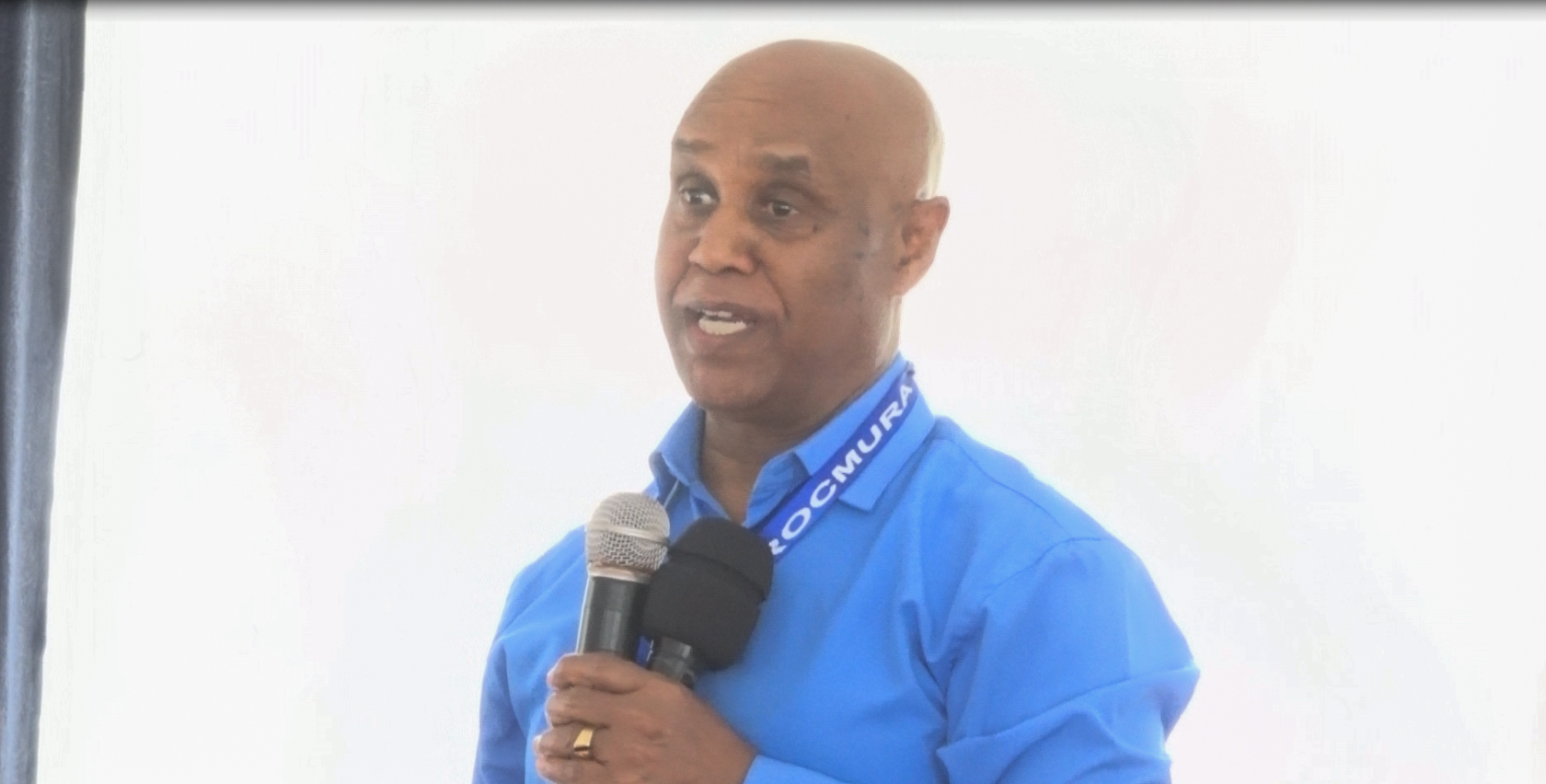
The General Secretary of the Ethiopian Council of Gospel Believers Rev Dr. Dereje.
Having gone through the workshop, the church leaders expressed their gratitude for the opportunity to participate in the Church Leaders conference, which also gave them an opportunity to be part of the delegates of PROCMURA’s 18th General Council. This was historical as it gave the leaders an opportunity to learn more about PROCMURA’s work and its importance to the mission of the church, enabling them to reaffirm their commitment and support PROCMURA’s work in their countries, which was key in the current context of religious plurality.
Fr. James Oyet Latansio, the General Secretary of the South Sudan Council of Churches, a country which has suffered the effects of such conflicts, echoed Dr. Mbillah’s sentiments and expressed his commitment to work closely with PROCMURA in the council’s endeavour to preach peace and peaceful coexistence between Christians and Muslims in his country.
The Moderator of the Evangelical Presbyterian Church in Togo, Rev. Dr Daniel Mawusi Akotia, commended PROCMURA for its tremendous and impactful work around the continent. He noted that its work is vital as it empowers Christians to understand how to effectively witness the gospel in an interfaith environment, something that goes a long way in creating good relations with Muslims for peaceful coexistence and the development of society.
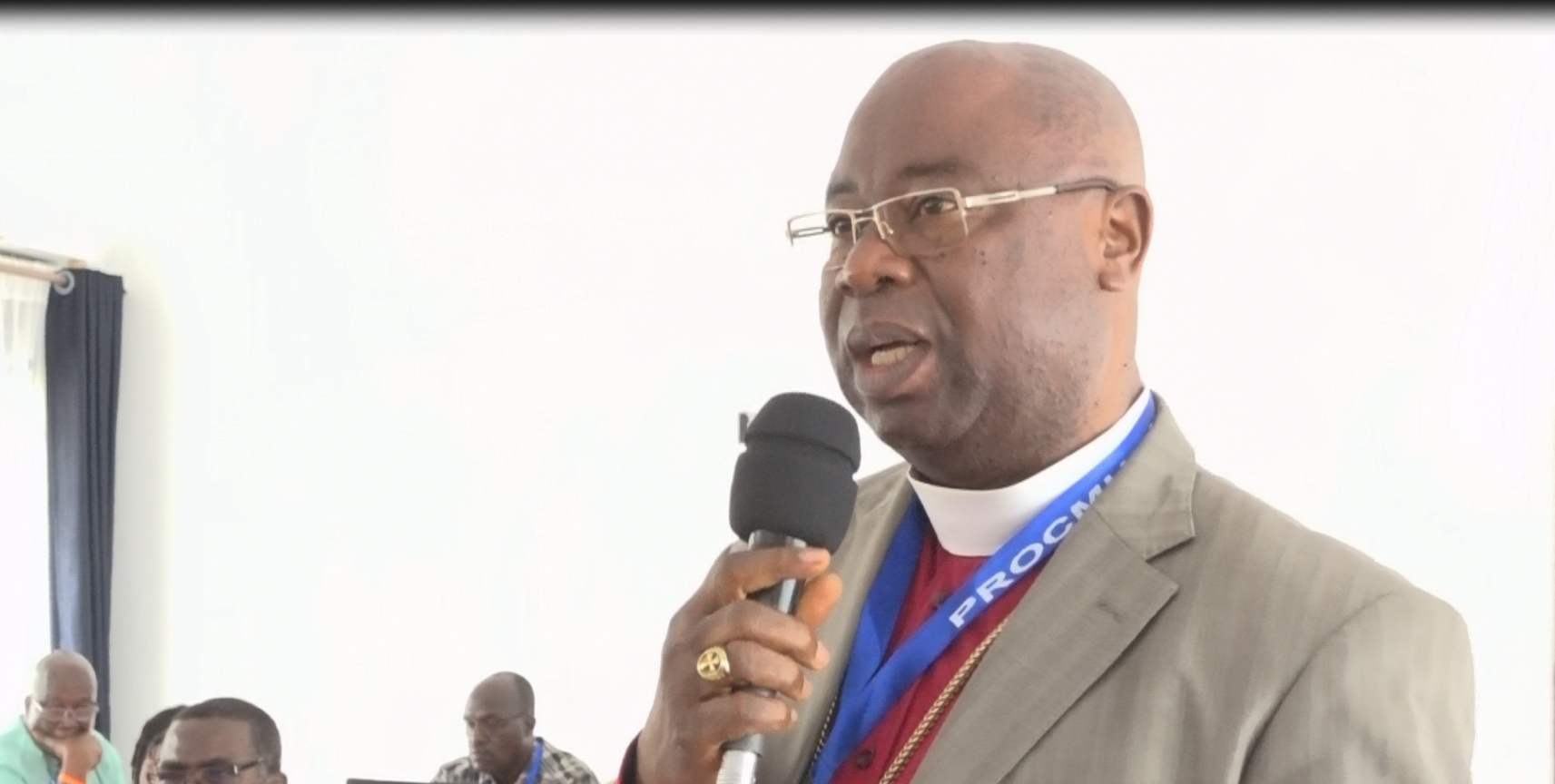
The Moderator of the Evangelical Presbyterian Church in Togo Rev. Dr Daniel Mawusi Akotia.
While reflecting on the Memorandum of Understanding that PROCMURA entered with the Protestant University of Central Africa (PUCA) to offer a Master of Arts degree in Islam and Christian-Muslim Relations (ICMR) in the Francophone West African region, the institution’s Rector, Prof. Samuel Frouisou called on the church leaders to really consider the formal training aspect of the ICMR. Prof Frouisou, who is also an ordained minister of the Evangelical Lutheran Church of Cameroon, added his voice by calling on the church in Africa to take ownership of the PROCMURA Vision and Mission and collaboratively work towards achieving it.
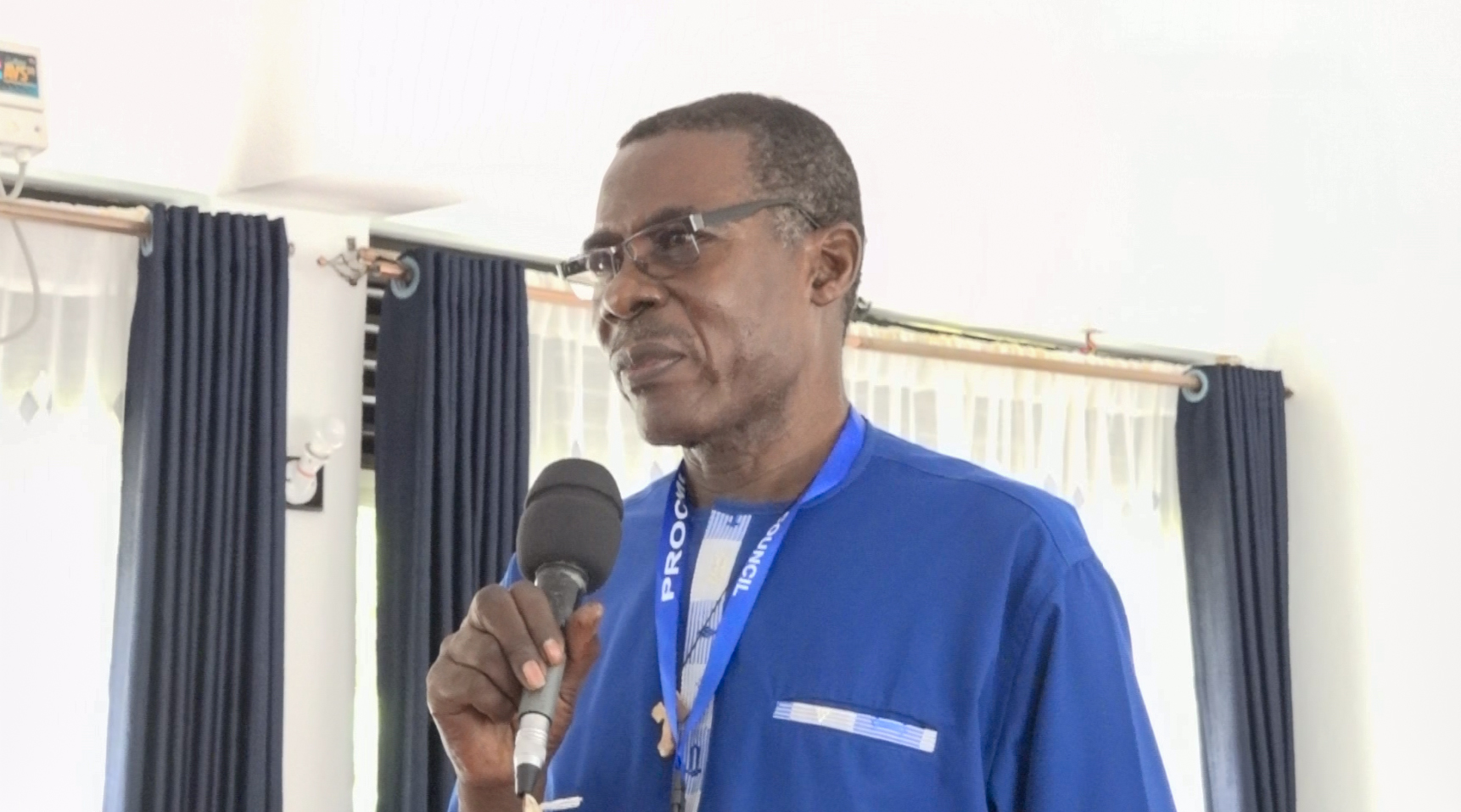
The Rector of the Protestant University of Central Africa (PUCA) Prof. Samuel Frouisou.
The senior clergy, who hold significant influence across the continent, expressed their unwavering commitment to PROCMURA’s work. They pledged their support to work with the organisation and create platforms through which their clergy and laity could be empowered to enable them to navigate the context of religious plurality, noting that both Christians and Muslims must recognise that they will always coexist and that the ability to coexist and be tolerant of one another must be continuously imbibed in them.
The main highlight of the workshop came at the end when the leaders issued and signed a Communique recognizing the growing trend of religious extremism and the importance of ensuring that Christian witness in an interfaith environment respects the spirit of good neighbourliness, among other important factors.
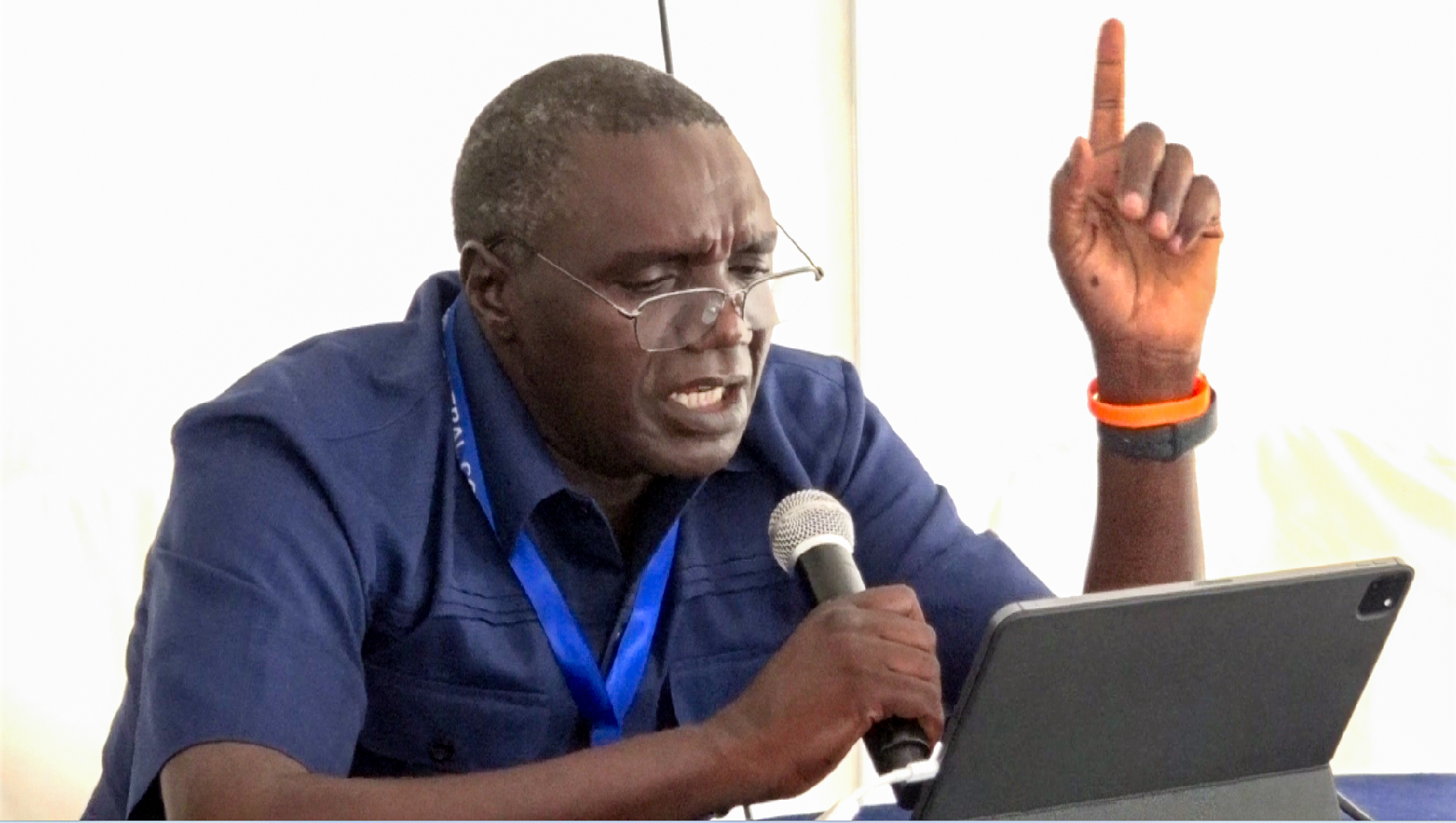
Fr. James Oyet Latansio, the General Secretary of the South Sudan Council of Churches and the Secretary of the Draft Committee of the Communique, presenting the Communique to the plenary for adoption.
While signing the communique on behalf of the delegates, The Chairperson of the Draft Committee, Rt. Rev. Dr Nathan Samwini noted that Religious plurality has been exploited negatively to fuel division among people, leading to society’s disintegration and family disunity, consequently leaving behind many broken relationships. More so, violent extremist groups have continued to put on religious colourings, making religion appear to be more of a diving factor than a unifying one. Most youth radicalized into violent extremism in Africa are new converts to Islam from Christianity. This has turned out to be a concern for the churches in Africa.
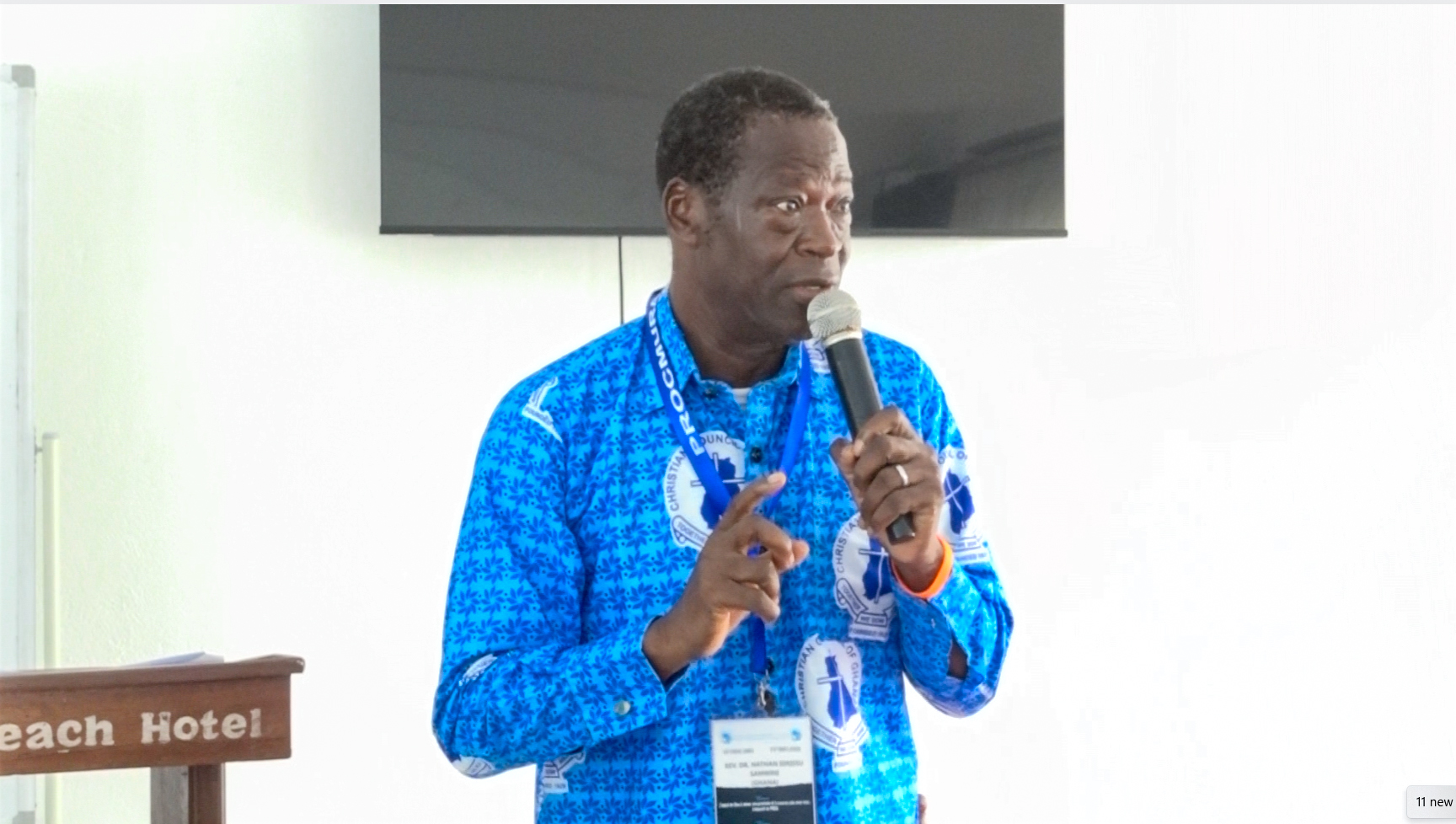
Rt. Rev. Dr Nathan Samwini.
The delegates called on the church to be aware of Africa's pluralistic nature in both religious and ethnic terms, reflecting on their dedication to navigating the complexities of Christian-Muslim relations in Africa alongside PROCMURA.
The 18th General Council of PROCMURA, hosted by the Anglican Church of Kenya (ACK) Diocese of Mombasa, enabled a number of significant programmes and decisions to be undertaken, resolutions taken, and a re-commitment to several focal areas of the PROCMURA's work through the various events, including Pre- and Post-Council workshops, that took place at the Milele Beach Hotel in Mombasa, Kenya, from 5th to 13th April 2024.

